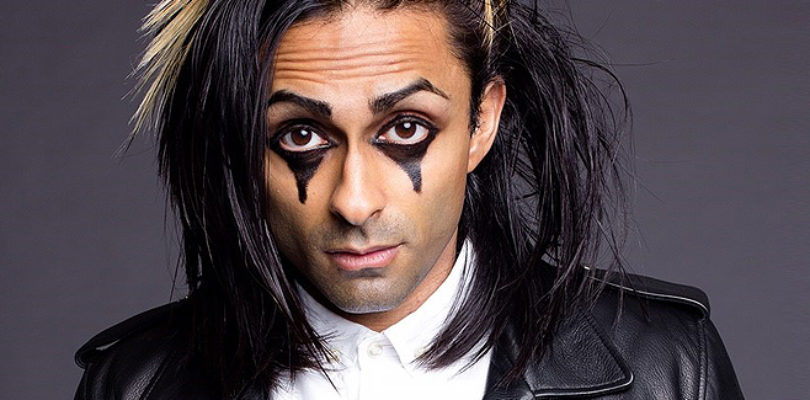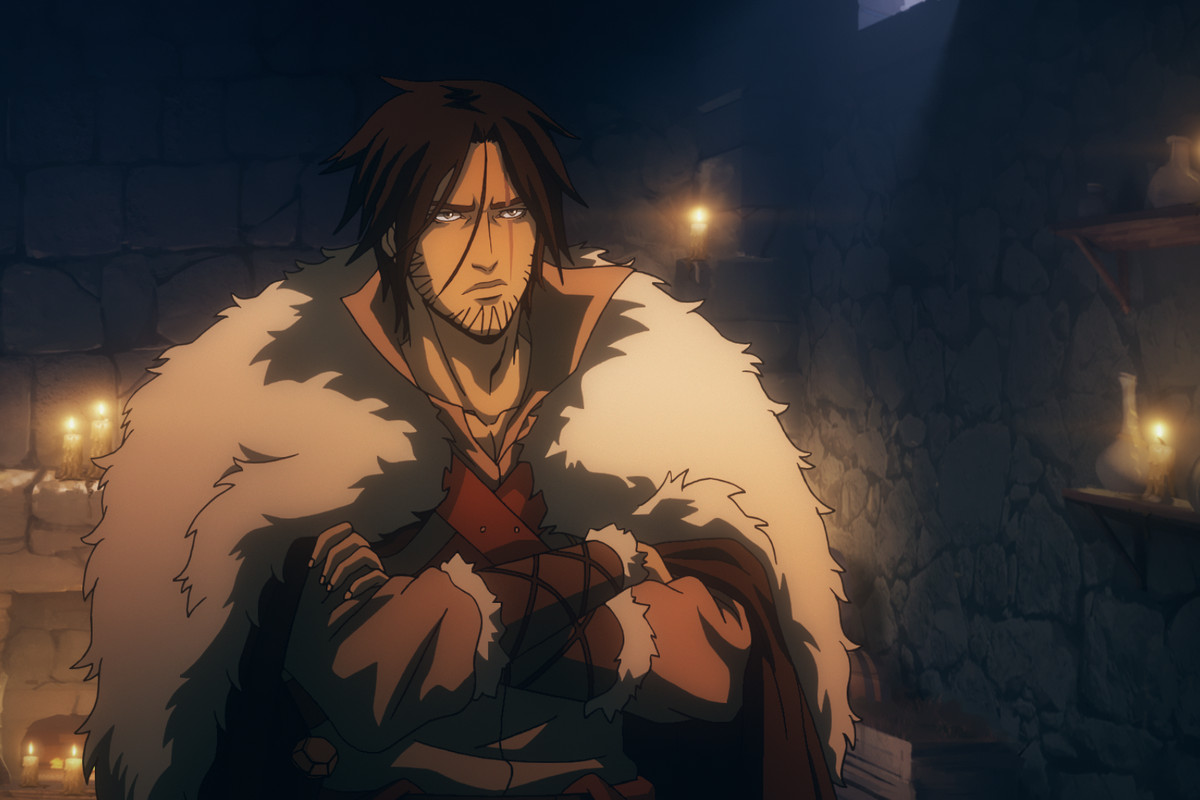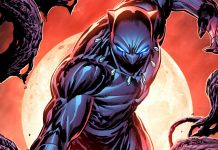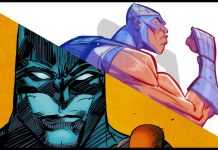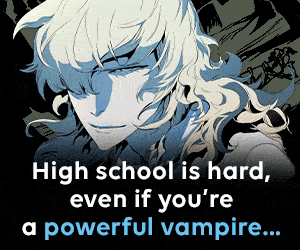by Karama Horne –
Adi Shankar is not used to being famous. When I first met him at New York Comic Con this year, he seemed as fascinated by the fact that I was a fan of his work as I was with meeting him. Although he’s made a name for himself as a producer – including Netflix’s Castlevania series, which recently debuted its second season – Shankar carries himself like a visual artist. Observing everything around him, he frequently pauses in conversation as if he’s re-processing a scene from different angles and perspectives. Known for his harlequin eyeliner and black leather jackets, Shankar is acutely aware of his own brand and he’s become accustomed to people having trouble labeling him within one particular genre. Which is why Shankar has quietly become one of the most sought after voices in pop-culture entertainment today.
Not just a “Youtube personality”, Shankar has produced Hollywood projects like Dredd (2012) starring Karl Urban, Lone Survivor (2013) starring Mark Wahlberg, The Grey (2011) featuring Liam Neeson. And this year he famously created a rather powerful and timely commentary on the Simpson’s problematic fave Apu. However, he’s best known for his Bootleg Universe One-Shots, a series of fanfilm shorts that he created purely out of his love of geek culture. His film Power/Rangers, (2015) directed by Joseph Kahn, starring Katee Sackhoff and James Van Der Beek was a huge success and the first time I had heard of Shankar’s work. Grown-up, raw, and violent, in 12 minutes, he’d managed to create the Power Rangers that I wanted to see. (I’m still convinced that half of the art direction for last year’s Saban’s Power Rangers film was taken from his short).
On the eve of the second season premiere of Castlevania on Netflix and another Kahn collaboration with Eminem on the upcoming battle rap parody film called Bodied, I got to have a longer conversation with Shankar about his shift from filmmaker to famous and why Castlevania is not an origin story. This is a portion of that conversation.
What has been more gratifying for you? Producing big Hollywood movies with stars or being able to convince those stars, to work your fan films?
Shankar: What was more gratifying was the fan films. The original plan [with Power Rangers] was to do it with complete unknowns. because it wasn’t about star power it was just a love letter to the Power Rangers franchise. Which by the way, I didn’t realize had any fans before making it, because I watched it in a vacuum in a foreign country. So like, I had no idea other people liked it.
Joseph Kahn, the director, was like, “I’m down to do this, but let’s try to get like someone who people know.” and the first name that came out of his mouth was Katee Sackhoff. I actually know Katee, so I emailed her and within three minutes she responded and said “I’m in”. And I didn’t really explain a whole lot of what we were doing. and then James Vanderbeek, he’s actually one of my best friends, we were actually having dinner with my dad was in town and then James was like, Hey, I want to do one of your shorts let’s do like a Mortal Kombat one. And I said I’m doing this Power Rangers one, you should totally do it. So it wasn’t really a process convincing anybody to do these things.
So it was that simple.
Well, back then the internet was just kind of this weird unknown. It was this weird mystery and Hollywood had this structure and it was like the tail end of the culture of excess. So every actor had like four agents and three managers and two lawyers. And then there I was like, texting people and they would just respond and do it and there was no money changing hands. So it became very streamlined and very basic and easy.
Since you were at the forefront of that, is that why Hollywood starting taking notice?
I noticed a massive shift, or rather I felt a massive shift at some point between 2015 and last year. I think it was a combination of the Internet really taking off, the proliferation of smartphones and also I think it was the rise of the middle class and the globalization of entertainment. I think all these things happened simultaneously with the dissolution of a uni-culture. So everything got split up into these little niche communities. Which became more valuable than mass market projects and then finally the proliferation and domination of nerd culture. I think that the combination of all those things kind of happened.
After that, the way people started perceiving me changed. I went from someone who was considered ‘completely out of their mind’ then all of a sudden I woke up and I found myself living in a world where I was respected for my thoughts. What I didn’t really realize was happening that was getting a little famous. This didn’t dawn on me at all.
Is one of those changes how Netflix treated you after season 1 of Castlevania?
I remember it was really crazy because I had a meeting with them after Castlevania season one came out and all the people that had brought me in were like, “Congratulations. You just proved our instincts right.” I remember it was some variation of that like “You made us look very good.”I did get the sense that pre Castlevania I was still a slightly unknown quantity because [before the show] they were like, “We don’t know what he’s gonna do, he seems a little crazy. What’s his whole vibe? Can he actually manage something? Can he play well with others?” There was a lot of questions. It had been a minute since I’d done something, “within the system”. I’d had success outside the system, but they want to know if you can work within their rules, in their sandbox.
As you said, though, the system itself had changed and so has this story. Trevor Belmont’s first appearance was in the Konami game was in Castlevania three. Why did you start with that storyline and not Simon Belmont story from like the previous two games, like the vampire hunter stuff?
Watch the show because there’s more of that gets explained. Also, I’m just not a fan of the origin story. I actually don’t believe in origin stories.
Why don’t you believe in them?
Because every day is an origin story and every moment is just preparing you for the next moment and every challenge is an ongoing continuous thing. I think selling people this narrative that there’s going to be this one inciting incident and then all of a sudden you become Spider-Man or whatever, we don’t need that. We don’t need that narrative.
What about the whole concept of redemption arcs?
That I’m totally on board with. Because let’s say, let’s say Dracula had been a cartoonish villain, then you wouldn’t have had in season one. You wouldn’t have had that entire backstory of trying to get in touch with this humanity and all that stuff and why all of a sudden his war against humans in the show is justified. So without that backstory, he becomes this like cartoony villain. I just I feel like, it’s important to kind of get across that the bad guys are really the heroes of their own narrative.
Let’s talk about how Castlevania actually got made. I heard you had trouble finding artists. Is that true?
Yeah. There’s a wonderful animation company called Powerhouse based out of Austin, Texas. Sam Deats, the director of the show he works out of there as well. But I mean, it was insane. As soon as the show got greenlit, Kevin Kolde, Kevin’s, my partner on the show. Our first big hurdle was, was pulling the animation team together and it was and it was all about doing that 2D hand drawn look, and at first, no one could do it.
The 2D hand drawn look was that important to you?
Yes. Yes. I wanted like Vampire hunter D, Ninja Scroll, that style. Not that CG style, which kind of rips the emotion out of it. I can’t remember what company it was. I think it was, one of the big studios out of Japan that we talked to, they were literally like, “Oh. People don’t even know how to do that style anymore more. Because everyone who used to do that style is like old or retired”.
How did you solve the problem? Because you obviously pulled it off well.
I mean the problem really solved itself as we started pulling people in. Powerhouse was so instrumental. I mean to just say they’re instrumental, implies that there were other instruments involved. But Powerhouse is dope.
Did you have a lot to do with the designs?
Yeah. And Sam our director, he also had a very crucial role in that as well. Some of the characters like Alucard’s I had pretty fleshed out because Symphony of the Night is a pretty deep game. But when you look at Trevor Belmont, I mean he’s in Curse of Darkness, which is the Castlevania game chronologically set after Castlevania three, but he’s really more of a cameo. It’s more Hector’s game. Hector being the Devil Forgemaster, who’s a human works for Dracula. He’s in season two. Trevor Belmont’s main game was Castlevania three Dracula’s Curse. And there’s not a whole lot of characterization in that game. I mean, you know the basics of what it looks like. But the personality of Trevor Belmont isn’t in the game. Video games back then couldn’t really communicate personalities.
You’ve got Season 2 of Castlevania done, a documentary with Eminem, an Assassin’s Creed animated series in the works, feel famous yet?
I’m super, super, super psyched about all of it. Like now have an appreciation for stuff. And it’s cool that I get to put it out there and people like it. And the audience is amazing, it’s a great gift. I’m super blessed in super lucky. Are there drawbacks? Absolutely. Both emotional and mental drawbacks. But the, the pros heavily outweigh the cons and really where I’m entering into now is give back mode. I’ve been like insanely lucky.
Karama Horne is the creator of theblerdgurl.com and is a contributing editor, producer and podcast co-host for SYFY Wire. When she’s not live tweeting, reading indie comics, or binge-watching anime, she’s usually looking for her keys and trying to keep her cat from eating all of her shoelaces.



